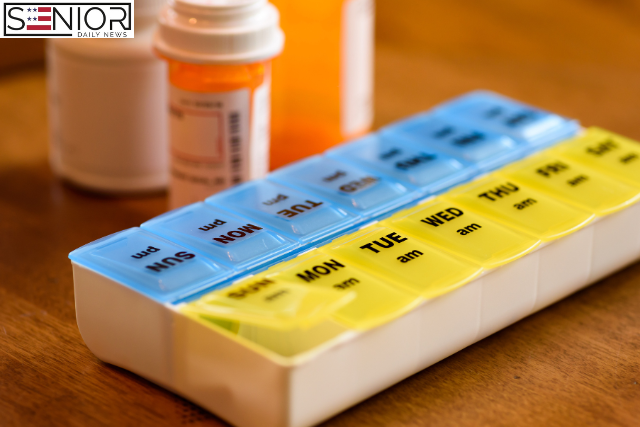Managing Medication Safely: A Guide to Staying Healthy and Informed

Medications play a crucial role in modern healthcare—helping to treat, control, or prevent illness. For millions of people, especially seniors and those managing chronic conditions, taking medicine correctly can mean the difference between staying healthy and facing serious complications. But with multiple prescriptions, over-the-counter drugs, supplements, and even herbal remedies in the mix, managing medication safely becomes more complex—and more important—than ever.
From avoiding harmful drug interactions to staying on track with your dosage schedule, this guide explores how to manage medications effectively and safely. Whether you’re caring for yourself, a loved one, or a patient, understanding medication safety is a cornerstone of good health.
Why Medication Management Matters
Mismanaging medication isn’t just a minor inconvenience—it’s a serious health risk. According to the World Health Organization, over 50% of people with chronic illnesses do not take medications as prescribed, and medication errors are responsible for thousands of avoidable hospitalizations every year.
Proper medication management helps:
- Improve treatment outcomes
- Prevent harmful interactions and side effects
- Reduce hospital visits
- Support independence in older adults
- Provide peace of mind for caregivers
Common Challenges in Medication Management
Medication errors can happen for a variety of reasons, especially when multiple drugs are involved.
1. Polypharmacy
Taking several medications at once—known as polypharmacy—is common among older adults. While often necessary, it increases the risk of:
- Drug interactions
- Duplicated therapy
- Confusion over scheduling
2. Memory or Cognitive Impairment
Forgetfulness or cognitive decline can lead to:
- Missed doses
- Double dosing
- Taking medication at the wrong time
3. Complex Instructions
Some medications must be taken with food, on an empty stomach, or at specific times. Misunderstanding these rules may reduce effectiveness or cause side effects.
4. Vision or Dexterity Issues
Small print on bottles or difficulty opening containers can make medication access challenging for seniors or those with disabilities.
5. Cost and Access
Sometimes, medications are skipped or rationed due to affordability or availability.
Tips for Managing Medication Safely
1. Create a Complete Medication List
Keep a written or digital record that includes:
- Prescription medications
- Over-the-counter drugs
- Vitamins and supplements
- Herbal products
Include dosage, frequency, and reason for taking each. Update this list regularly and bring it to all healthcare appointments.
2. Use a Pill Organizer
A weekly or monthly pill organizer is one of the simplest tools for preventing missed or extra doses. Many versions come with:
- AM/PM compartments
- Removable daily trays
- Locking lids for safety
Some even have digital reminders or connect to mobile apps.
3. Set Reminders
Alarms on phones, watches, or smart home devices can be powerful tools for staying on schedule. There are also apps that provide push notifications and track missed doses.
4. Consult a Pharmacist
Pharmacists are often underutilized but highly knowledgeable resources. Ask about:
- Potential interactions
- Side effects to watch for
- Timing and food instructions
- Whether generics or combination pills are available
5. Read the Labels Carefully
Always check:
- Expiration dates
- Dosing instructions
- Storage requirements (room temperature vs. refrigeration)
If you’re unsure, don’t guess—ask a healthcare provider or pharmacist.
6. Avoid Medication Sharing
Never take medications prescribed for someone else, even if symptoms seem similar. Dosages and drug interactions vary greatly between individuals.
7. Report Side Effects
If you experience new symptoms, don’t stop a medication on your own. Contact your healthcare provider immediately to evaluate and adjust your regimen safely.
Comparison: Safe vs. Unsafe Medication Practices
| Practice | Safe | Unsafe |
|---|---|---|
| Keeping a medication list | Regularly updated and shared with doctor | Scattered notes or no list at all |
| Using a pillbox | Weekly setup with labels | Loose pills in containers or pockets |
| Reading labels | Reads before every dose | Assumes without checking |
| Sticking to schedule | Uses reminders and tools | Relies on memory alone |
| Communicating with providers | Informs doctors about all medications | Assumes providers already know everything |
| Storing medications | In original containers, away from heat | Mixed pills, exposed to light or moisture |
Special Considerations for Seniors
Older adults are more likely to take multiple medications and face health conditions that make management more complex. Here are tailored strategies:
1. Simplify the Regimen
Ask doctors if medications can be reduced, combined, or taken less frequently.
2. Check for Drug Interactions
Seniors often see multiple specialists. Make sure all prescriptions are reviewed together to check for interactions.
3. Review Medications Annually
Ask for an annual “brown bag review” where you bring all medications and supplements to a doctor or pharmacist for a comprehensive evaluation.
4. Include Caregivers
If memory issues are present, involve a trusted friend, family member, or home health aide in medication management.
Technology Tools for Medication Safety
Modern tech offers several options to make managing medication easier and safer:
- Medication Reminder Apps (e.g., Medisafe, MyTherapy)
- Smart Pill Dispensers that alert and dispense doses at the right time
- Electronic Health Portals for sharing records and notes with doctors
- Voice Assistants (like Alexa or Google Home) for verbal reminders
Medication Storage Safety
- Keep medications out of reach of children and pets
- Store at consistent, appropriate temperatures
- Never mix pills in a container unless properly labeled
- Dispose of expired or discontinued medications safely—many pharmacies offer take-back programs
How to Safely Dispose of Medication
- Don’t flush drugs unless the label specifically instructs you to
- Use authorized drug take-back programs
- If no programs are available, mix meds with something unpalatable (like coffee grounds), seal in a plastic bag, and throw in the trash
FAQs: Medication Safety
Q: What should I do if I miss a dose?
A: Follow the instructions on your prescription. In general, take it as soon as you remember, unless it’s close to your next dose. Never double up without guidance.
Q: Can I split pills to save money?
A: Only if your doctor or pharmacist says it’s safe. Not all pills are designed to be split, especially extended-release ones.
Q: Are generic drugs safe?
A: Yes. Generics must meet the same standards for safety and effectiveness as brand-name drugs, though inactive ingredients may vary.
Q: Should I stop taking meds if I feel better?
A: No. Always finish prescriptions as directed unless your provider tells you otherwise.
Q: What’s the best way to help a loved one manage medications?
A: Offer to help organize their meds, attend appointments, and monitor for changes in behavior or health.
Final Thoughts
Managing medication safely is not just a personal responsibility—it’s a vital part of overall wellness. Whether you’re managing your own health or caring for someone else, safe medication habits can prevent serious complications and foster greater peace of mind.
With the right systems, tools, and support, you can turn a potentially confusing and risky process into a simple, safe daily routine. Start by reviewing your medications, talking with your doctor, and adopting habits that protect your health—one pill at a time.






